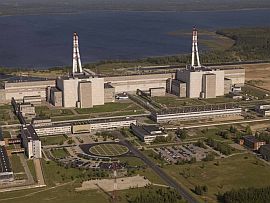Energy, Estonia, Legislation, Lithuania, Nuclear power plant
International Internet Magazine. Baltic States news & analytics
Monday, 29.12.2025, 05:50
Sekmokas: Estonia refused to join Lithuania's new NPP project back in 2012
 Print version
Print version |
|---|
"In fact, the Estonian state, the Estonian government back in 2012 basically refused to further develop the Visaginas project and I think this determined to a large extent (...) the further course of the project," Arvydas Sekmokas, the energy minister in the former Conservative and Liberal coalition government, said at the Institute of International Relations and Political Science at Vilnius University on Monday.
Sekmokas, who is now a member of the City Council of Vilnius, explained to BNS later that Eesti Energia had ignored talks with Japan's Hitachi.
"They (Eesti Energia) would participate in meetings, but would always express their doubts. The talks were on the signing of a concession agreement and they showed no interest in signing that agreement," the former minister said.
"This is quite understandable, because that would pose competition to Eesti Energia, which planned to develop and was developing electricity production from shale oil. Also, Eesti Energia would have lost the dominant position it had in the Baltic markets; it was considered the strongest company in the Baltic countries," he told BNS.
According to Sekmokas, Eesti Energia's position was later confirmed by the country's leaders.
He said that a concession agreement between the Baltic countries on the Visaginas plant had been an essential precondition for Hitachi joining the project.
Lithuania in the summer of 2011 chose Hitachi as a strategic investor in the planned new nuclear power plant, but Lithuanian voters did not back the project in a non-binding referendum held a year later.
The current government of Social Democratic Prime Minister Algirdas Butkevicius, which took office shortly afterwards, repeatedly set new deadlines for making decisions on the Visaginas plant, but the project is basically dead. There has been almost no public discussion about it in the past year.








 «The Baltic Course» Is Sold and Stays in Business!
«The Baltic Course» Is Sold and Stays in Business!

